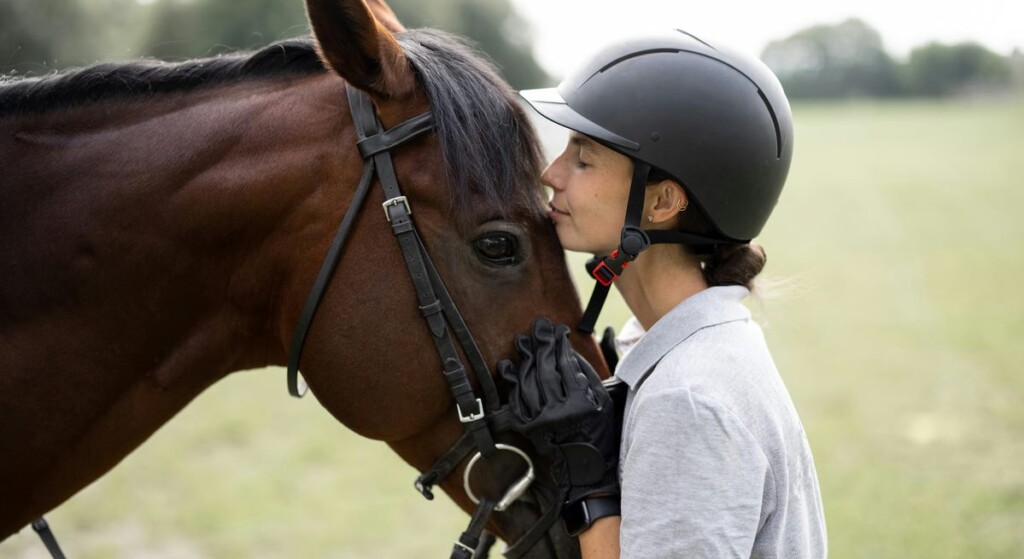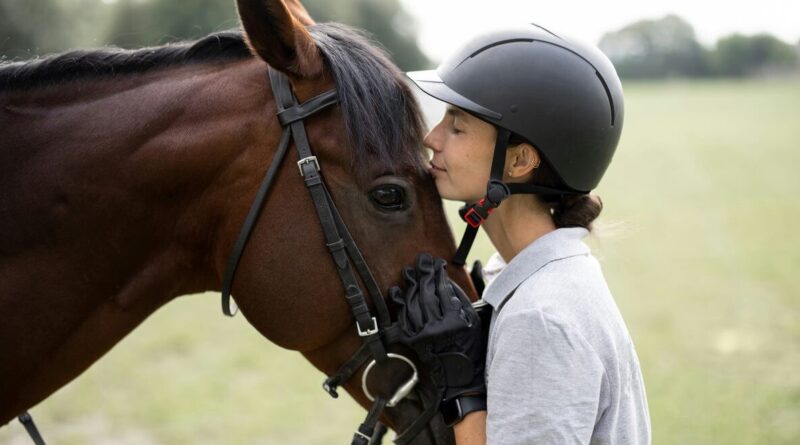Horses and Humans Go Blind for Similar Reasons, So This Medicine Might Cure Both

Whether one sports hooves or toes, a mop or a mane, autoimmune uveitis can strike away eyesight equally.
A cure for this form of blindness common in horses, but also people, is now undergoing trials that may benefit both.
An interdisciplinary team from the Univ. of Florida’s Institute of Food and Agricultural Sciences, College of Veterinary Medicine, and College of Medicine—ophthalmology, has published findings on an eye-drop medicine to treat uveitis, a leading cause of blindness in both species.
The disease amounts to 10% of new blindness and visual handicaps in the US every year; affecting around 30,000 people.
Named for the uvea, the middle layer of the eye, and ‘itis,’ the suffix that denotes inflammation, eyesight loss occurs when structures of the eye break down from the disease, and light to the retina is blocked.
If caught early, medicine can prevent uveitis from causing loss of eyesight, but in more advanced cases, the damage is often already done, and the eventual effects irreversible.
“It turns out that the place where the drug sits to have its effect in the eye is the same in people and in horses,” said Joseph Larkin, associate professor at UF/IFAS.
“We think that if we’re able to prove its effect in horses, we’ll also be able to treat the disease in people. People go blind if they have this disease, so it definitely alters their quality of life permanently.”
CURING BLINDNESS: Bioengineered Corneas Stand to Cure Blindness For Millions of People Around the World
The eyedrops Larkin and his team developed contain a synthetic peptide that acts to block the inflammatory pathways which cause the inflammation that results in a breakdown of the eye tissue structures in autoimmune uveitis in both horses and humans.
Previous treatments have often proved ineffective due to the condition’s tendency to recur.
VETERINARY ADVANCEMENTS: Legally Blind Texas Student Defies Odds, Gets Accepted into Veterinarian School: ‘Anything is possible’
Research has already been conducted using this eye-drop therapy on blind or light-sensitive horses at the UF/CVM, in which the horses were documented to have regained calmness and composure during exposure to bright light.
The next step will be a clinical trial in horses.
SHARE This Crossover Medical Breakthrough With Your Friends…

